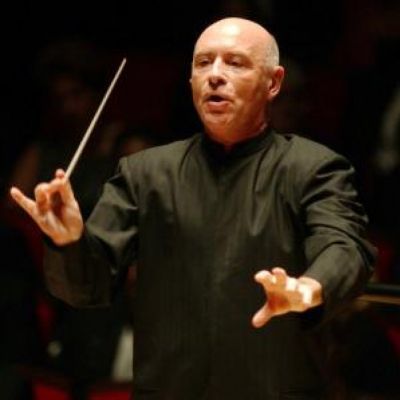Eschenbach, CSO wrap year with blazing Bruckner

The Chicago Symphony Orchestra has a long association with Anton Bruckner’s music. Complete Bruckner symphony cycles have been performed and recorded by both Sir Georg Solti and Daniel Barenboim, and Theodore Thomas and the orchestra gave the American premiere of the Ninth Symphony in 1904 (albeit in the vivisected Lowe edition).
For the CSO’s final subscription program of the year, the orchestra is presenting Bruckner’s Symphony No. 9, led by Christoph Eschenbach.
The Austrian composer didn’t live to complete the Ninth, his final opus, yet few works sound so satisfying in their unfinished state. The work is structured like Bruckner’s other symphonies on the grand scale, with a vast opening movement of thematic richness, alternating rugged drama with Alpine-fresh lyricism, the sense of titanic struggle punctuated by massive climaxes. The ensuing Scherzo is more driving and relentless than light-hearted yet it is the Adagio, the work’s inadvertent finale, that reaches the heights. The arching trumpet-led opening theme, and its stormy working out, seem to blend a spiritual consolation and valedictory feeling with hard-won solace.
As a Brucknerian, Eschenbach is more in the Solti than Barenboim mold, favoring fleet tempos, taut drama and incisive articulation. Those who want more European warmth and a sense of spiritual innigkeit in this music may feel those qualities are somewhat shorted.
But Eschenbach’s straightforward approach provided its own rewards. Refusing to dawdle too lovingly in the Alpine byways brought firm momentum. Climaxes in the opening movement were punchy and rooted, with overwhelming power and ballast, yet the lyrical second subject had admirable tonal gleam.
The dark insistence of the Scherzo was hammered out with tremendous force, the scampering winds of the trio lending worthy contrast. Eschenbach was at his finest in the Adagio, refusing to over-sugar the main theme and charting the ebb and flow skillfully, building cumulatively to the final climax and eloquent coda.
The playing was not always up to CSO standards Thursday with one jarring ensemble lapse in the Adagio and fitful brass glitches, the worst a horn burble coming, unfortunately, in the final bars. Yet for the most part the orchestra tackled this music with customary finesse and corporate virtuosity. It was good to have Mathieu Dufour back in the first flute chair, the strings played superbly, and the grand climaxes resounded imposingly, trumpets and trombones powerful and the five horns and four Wagner tubas making a mighty sound.
The brief 18-minute first half held works by Beethoven and Bernard Rands.
Rands’ …where the murmurs die… was heard in its Chicago premiere. Part of a Beckett-inspired series, the work was written two decades ago, proceeding from hushed opening notes to a motif on lower strings, the themes coalescing and developing to an unsettling coda with edgy high muted trumpets set against piccolo and flutes.
Rands, a longtime Chicago resident, is a gifted composer but I’m not sure that …where the murmurs die... is one of his stronger works, feeling a bit unfocused over its ten minutes. Eschenbach and the orchestra gave the work alert advocacy though the conductor’s emphatic, boldly outlined style didn’t seem in synch with the allusive, impressionistic style of the piece.
Eschenbach was more at home in the evening’s opener, leading a dramatic account of Beethoven’s Egmont Overture, with an atmospheric introduction and allegro having fire as well as sonorous weight.
The program will be repeated 1:30 p.m. Friday and 8 p.m. Saturday. cso.org; 312-294-3000.
Posted in Performances



Posted Dec 20, 2013 at 8:09 pm by Michael Gorcowski
I saw the Friday afternoon performance of the Bruckner. Eschenbach’s muscular Bruckner captured the spiritual longing and the inability to fully and entirely encompass the ineffable that is, for me, the core of Bruckner’s music. The journey of a Bruckner symphony leaves me feeling as if I’ve had a peek at the eternal; the end of a Bruckner symphony makes me realize that this hoped for vision is impossible. This was a performance of depth and breathless tension. Bravo to the Wagner Tuba quartet, and to the magnificent organ-like chords played by the strings in the third movement.